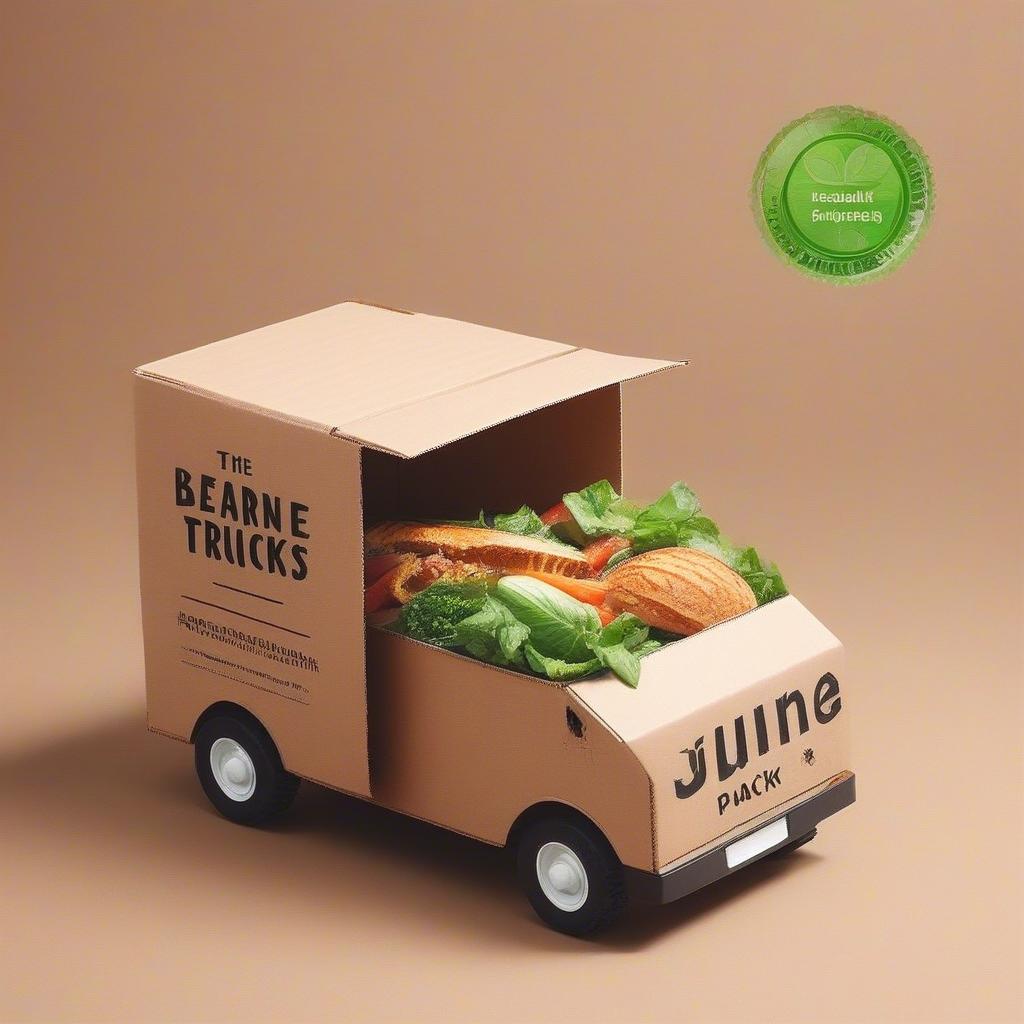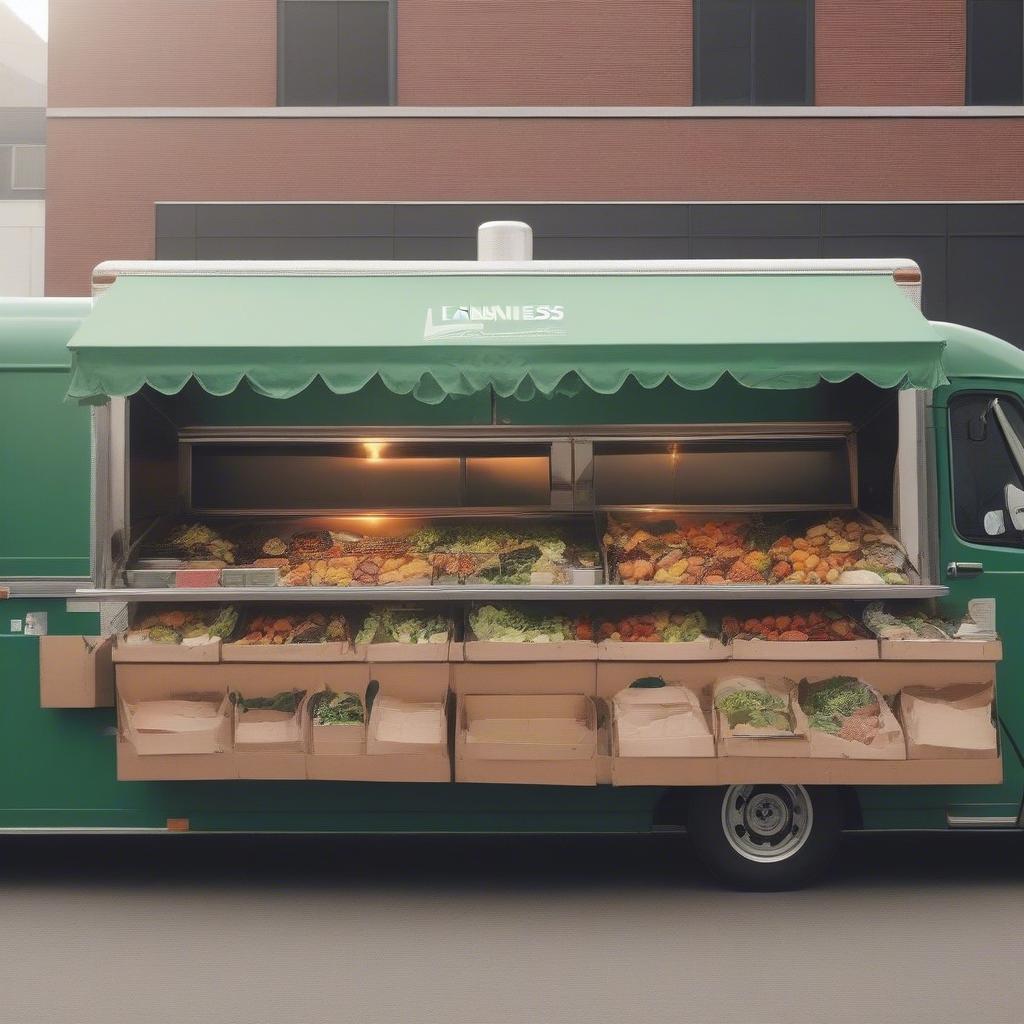
How to Get a Mobile Food Vendor License in Your City
Dreaming of serving up delicious dishes from your very own food truck? The aroma of sizzling street food, the happy chatter of satisfied customers – it’s an image that’s hard to resist. But before you hit the road and start making those dreams a reality, you’ll need a food truck license. Getting a vendor permit might seem daunting, but with the right information and a little planning, it’s a completely achievable goal. This comprehensive guide will walk you through the process of securing your mobile food vendor license, ensuring you’re legally and safely operating in your city.
Why You Need a Mobile Food Vendor License
Before we delve into the "how," let’s address the "why." Why is a food truck license necessary? It’s not just about red tape; it’s about ensuring public health and safety, maintaining fair competition, and guaranteeing that your business operates legally. Here’s a closer look:
Public Health and Safety
- Food Handling Standards: A vendor permit mandates adherence to strict food safety guidelines. This includes proper food storage, handling, preparation, and temperature control. These measures prevent foodborne illnesses and protect your customers.
- Equipment Compliance: Your food truck equipment, from cooking appliances to refrigeration units, must meet specific safety standards. Inspections, often part of the licensing process, verify this compliance.
- Sanitation Requirements: Licensing ensures that you have appropriate handwashing stations, waste disposal systems, and other sanitation measures in place to maintain a clean and healthy environment.
Fair Business Practices
- Legal Operation: Without the proper food truck license, you risk hefty fines, potential closure of your business, and damage to your reputation. Operating legally ensures fairness for everyone in the food vending industry.
- Designated Locations: A vendor permit often outlines where you can legally operate your food truck, preventing unauthorized or disruptive vending practices.
- Consumer Trust: Licensed vendors project professionalism and credibility. Customers are more likely to trust and patronize a business that demonstrates its commitment to legal and ethical operation.
City Revenue and Regulation
- Permit Fees: The fees associated with obtaining a food truck license contribute to city revenue, which is often used to support infrastructure and public services.
- Organized System: Licensing allows cities to effectively regulate the mobile food vending industry, ensuring orderly growth and preventing chaos.
- Community Safety: Regulation helps manage traffic flow and pedestrian safety in areas with high concentrations of food trucks.
In short, a food truck license isn’t just a piece of paper; it’s a crucial step in creating a sustainable, reputable, and safe business.
Understanding City Requirements for Your Vendor Permit
Each city has its own unique requirements for obtaining a vendor permit, making it essential to research the specific regulations in your area. These requirements can vary significantly in terms of documentation, fees, inspection processes, and operational guidelines. Ignoring these local nuances can result in costly delays and complications.
Navigating Your City’s Website
- Locate the Right Department: The relevant department is usually the health department, business licensing division, or a specialized food vendor licensing agency.
- Search for "Mobile Food Vendor License" or "Food Truck Permit": Use these keywords on the city’s website to find the relevant pages and forms.
- Download Application Packets and Guidelines: Carefully review all the documentation provided, including checklists, forms, and permit rules.
- Note Deadlines and Contact Information: Make sure you’re aware of application deadlines and have contact information readily available for any questions.
Local Regulations to Be Aware Of
- Zoning Regulations: Some cities restrict food truck operations to specific zones or require minimum distances from brick-and-mortar restaurants. Understanding these rules will determine where you are legally allowed to operate.
- Permit Fees: The cost of a food truck license can vary widely. Factor these fees into your initial budget.
- Operational Hours: Some cities have specific time restrictions on when food trucks can operate, especially in residential areas.
- Food Safety Certifications: Many cities require that at least one member of your staff holds a valid food safety certificate, such as a ServSafe certification.
- Insurance Requirements: You will likely be required to carry general liability insurance, often with specific coverage limits.
- Health Inspections: Your food truck will be subject to periodic health inspections to ensure compliance with food safety regulations.
- Fire Safety: Fire suppression systems and other fire safety measures will likely be required for your vehicle.
- Waste Disposal: Cities may have specific regulations regarding the disposal of grease, wastewater, and other waste materials generated by your food truck.
- Parking Regulations: Be aware of any parking restrictions that may apply to food trucks, including time limits and designated parking areas.
- Background Checks: Depending on your city, they may require background checks for your business.
- Mobile Food Vendor License Renewals: Find out how frequently you must renew your food truck license.
Example:
Let’s say you are based in the fictional town of "Sunnyville". A quick search on "Sunnyville city mobile food vendor license" might lead you to a page that contains:
- A detailed application form
- A list of required supporting documents (proof of insurance, business registration, food safety certification)
- A fee schedule ($250 initial permit, $100 annual renewal)
- Zoning map indicating areas where food trucks are permitted
- Operational guidelines, including permitted hours and waste disposal requirements
- Contact details for the city’s food vendor licensing department
Tip: If the website is unclear, don’t hesitate to call or email the relevant department. They are usually happy to help and clarify any confusing aspects of the process.
The Step-by-Step Process of Obtaining Your Food Truck License
Now that you understand the "why" and the need for city-specific research, let’s break down the step-by-step process of applying for a food truck license.
Step 1: Crafting a Solid Business Plan
A solid business plan is the foundation of your mobile food business. It’s not only useful for securing financing but also essential for demonstrating to licensing authorities that you’re a serious and prepared entrepreneur. Your business plan should include:
- Executive Summary: A concise overview of your business, including your mission, goals, and target market.
- Company Description: A detailed description of your food truck concept, including the type of food you’ll offer, your target customers, and your unique selling proposition.
- Market Analysis: An in-depth analysis of your target market, including demographics, consumer preferences, and competitive landscape.
- Products and Services: A detailed menu listing your offerings, along with pricing and sourcing information.
- Marketing and Sales Strategy: A plan for attracting and retaining customers, including branding, social media, local events, and customer loyalty programs.
- Management and Operations: An overview of your organizational structure, staffing plan, daily operations, and operational procedures.
- Financial Projections: Detailed financial forecasts, including startup costs, projected revenue, operating expenses, and break-even analysis.
- Funding Request: If you are seeking funding, clearly outline your funding needs and your plan for repayment.
Template Example: You can find numerous business plan templates online. Look for those specifically tailored to the food truck industry. Many resources also provide interactive plan creation tools.
Step 2: Securing Necessary Permits and Business Licenses
Before you can apply for a food truck license, you’ll need to ensure your business is legally established. This typically involves:
- Business Name Registration: Register your business name with your state or local government.
- Employer Identification Number (EIN): Obtain an EIN from the IRS, even if you don’t plan on hiring employees right away. This is crucial for tax and other business-related purposes.
- General Business License: Apply for a general business license from your city or county.
- State Business License: Check for any state licensing requirements, which vary from place to place.
- Sales Tax Permit: Obtain a sales tax permit if you will be selling taxable goods.
Actionable Tip: Start this process early as it can often involve delays.
Step 3: Meeting Health and Safety Requirements
Ensuring compliance with health and safety standards is not just a requirement; it’s fundamental to running a successful and ethical business. This involves:
- Food Safety Certification: Take a recognized food safety training course and obtain your certification (e.g., ServSafe). This is often required for at least one member of your team.
- Commercial Kitchen Inspection: If you are preparing food in a commercial kitchen, this facility must be inspected and approved by the health department.
- Food Truck Inspection: Prepare your food truck for inspection. Make sure all equipment is working properly, the truck is clean, and you have the necessary documentation. Your truck must have the correct sink and washing set up.
- Menu Review: The health department may also require approval of your menu to ensure it complies with food safety standards.
- Proper Food Storage and Temperatures: Be certain your unit has all of the equipment to store your food at proper temperatures.
Strategy: Create a checklist of all the health and safety requirements and ensure you meet them before the inspection date.
Step 4: Gathering Required Documentation
A complete application package is crucial for a smooth process. Missing documents can cause significant delays. Typical required documents include:
- Completed Food Vendor Application: Carefully fill out all sections of the application form.
- Copy of Business License: Submit a copy of your general business license.
- Proof of Insurance: Provide evidence of your liability insurance coverage.
- Food Safety Certificate(s): Include copies of your valid food safety certifications.
- Vehicle Registration and Insurance: Provide proof of your vehicle registration and vehicle insurance.
- Equipment List and Specifications: Provide a list of the equipment in your food truck and its specifications.
- Menu: Provide a copy of your menu.
- Site Map: If required, provide a detailed map indicating the location where your food truck will operate.
- Payment of Fees: Pay all required permit fees.
- Background Checks: If required, make sure to complete background checks and submit to the proper authorities.
Template: Create a checklist that lists all required documents and make sure you have them all before submitting your application.
Step 5: Submitting Your Application and Scheduling Inspections
Once you have gathered all your documentation, it’s time to submit your application and schedule any required inspections:
- Submit Online or In Person: Submit your application either online through the city’s portal or in person at the designated office.
- Schedule Health Inspection: Contact the health department to schedule your food truck inspection.
- Fire Safety Inspection: If required, arrange for a fire safety inspection.
- Follow Up: If required, follow up with the licensing agency to check on the status of your application.
Tip: Be patient, as the approval process can sometimes take several weeks.
Step 6: Receiving Your Mobile Food Vendor License
After successfully passing all required inspections and your application has been approved, you will finally receive your food truck license or vendor permit.
- Review Your Permit: Carefully review your food truck license or vendor permit to ensure all information is correct and to check any operational conditions.
- Display Your Permit: Always display your food truck license or vendor permit in a visible location on your food truck.
- Understand Renewal Process: Know the renewal process, deadlines, and fees associated with your license.
Action: Make sure your truck is ready to go and is following all required city laws.
Common Mistakes to Avoid When Applying for a Vendor Permit
Applying for a food truck license can be a complex process, and it’s easy to make mistakes that can cause delays or even denial of your application. Here are some common mistakes to avoid:
- Starting Without Proper Research: Not thoroughly researching your city’s specific requirements is a costly mistake. Start your investigation early.
- Ignoring Zoning Regulations: Operating in restricted areas can lead to fines and the revocation of your permit. Understand local zoning regulations before you even think about where to park.
- Incomplete Documentation: Failing to provide all required documents will delay your application. Carefully review the checklist and ensure you have everything.
- Underestimating Costs: Budget for not only the permit fees but also for insurance, equipment upgrades, and other unexpected costs.
- Not Meeting Health and Safety Standards: Ignoring health and safety guidelines will lead to failed inspections and potentially jeopardizing the health of your customers.
- Ignoring Renewal Dates: Failing to renew your food truck license on time can lead to operational downtime.
- Skipping Business Plan: Operating without a business plan is like sailing without a map. You’ll risk failure if you don’t plan.
- Not Understanding Local Laws: City laws change, and not knowing the current laws could lead to fines. Always check for updates.
- Not asking for help: Reach out if you need any support. Don’t be afraid to seek guidance.
Pro Tip: Take your time, pay attention to detail, and don’t hesitate to ask questions to avoid these common pitfalls.
Maintaining Compliance After Obtaining Your Food Truck License
Getting your food truck license is just the first step. Maintaining compliance is an ongoing process that requires diligence and commitment. Here’s what you need to do:
- Adhere to Operating Hours and Location Restrictions: Be aware of time and location limits to avoid fines or permit revocation.
- Regular Health Inspections: Cooperate with all scheduled health inspections and address any issues immediately.
- Renew Your License on Time: Don’t wait until the last minute. Start the renewal process well before your permit expires.
- Stay Up-to-Date on Local Regulations: Regularly check for changes in local laws and regulations that may affect your operation.
- Maintain Records: Keep thorough records of your business activities, including sales, expenses, and inspection reports.
- Maintain a Clean Food Truck: Always keep the food truck clean and organized to promote customer trust and a healthy environment.
- Customer Feedback: Be sure to take customer feedback. They will let you know what is working, and where you can improve.
Strategy: Develop a daily, weekly, and monthly checklist to keep track of all required compliance activities.
How Learn Business Supports Your Journey to Food Truck Success
At Learn Business, we understand the challenges of starting and running a mobile food business. That’s why we offer guidance and resources tailored specifically to help food vendors like you thrive. Our platform provides:
- Business Plan Templates: Access professionally designed business plan templates that are easy to customize to your specific needs.
- Permit Application Checklists: Download detailed checklists that help you stay organized throughout the entire licensing process.
- Food Safety Guides: Learn about the best food safety practices to ensure that your business is always in compliance.
- Financial Management Tools: Utilize our financial templates to manage your startup costs, track your income, and monitor your expenses.
- Marketing Strategy Templates: Learn how to use marketing techniques to bring in new customers and retain the ones you have.
- One-on-One Mentorship: Connect with experienced business mentors who can guide you through any challenges you may face.
Our mission is to equip aspiring entrepreneurs with the knowledge and resources they need to succeed. We understand the unique hurdles you’ll encounter in the food truck industry. Let us help you navigate the complexities of licensing, operations, and business management.
Conclusion: From Permit to Profit
Securing a food truck license in your city is a critical step in launching your mobile food business. It’s a process that requires careful planning, thorough research, and unwavering commitment. By understanding your local requirements, gathering the necessary documentation, and diligently following the necessary steps, you can navigate the licensing process successfully. Remember to maintain compliance and never stop learning. Armed with a solid business plan, a valid vendor permit, and a passion for great food, you’ll be well on your way to running a thriving food truck business that not only satisfies your entrepreneurial spirit but also delights your customers.
Don’t let the licensing process intimidate you. Embrace the challenge, stay informed, and most importantly, stay passionate about your food and your vision. We’re here to support you every step of the way. Your dream of a successful food truck business starts with one key action – securing your food truck license.



Leave a Reply